Tribeca Review & Interview: THE GREAT PRETENDER: When Reality & Performance Blur
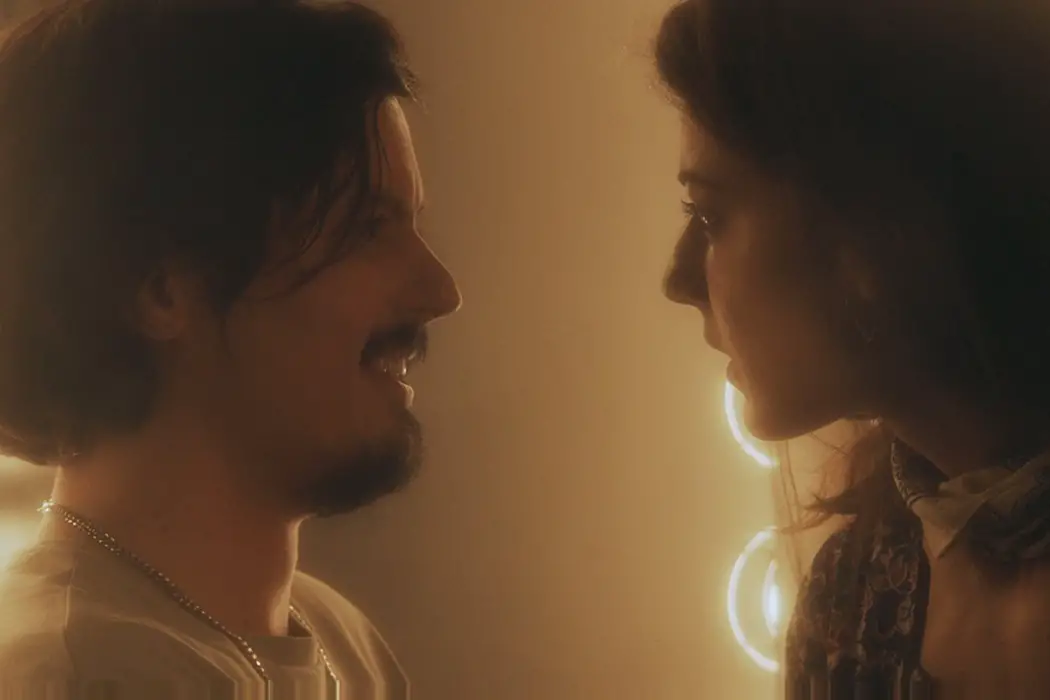
Kristy Strouse is the Owner/Editor in Chief of Film Inquiry,…
The Great Pretender, the newest by director Nathan Silver, looks like a film, but feels like a play. The reason is because Pretender’s plot focuses on a production, its players, the writer, and the man (and relationship) who inspired her to create it.
Though, that’s just the outside appraisal, because it’s really a study of personalities, vanity, love, sex, and the clash of art and life.
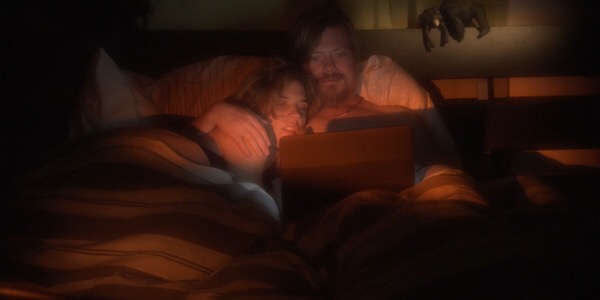
The movie is broken up into sections, each one focusing on of the main four character’s points of view. Mona (Maëlle Poesy-Guichard), is a playwright, and she’s used her own story and that of her ex-boyfriend Nick (Linas Phillips) for inspiration. For the characters in The Great Pretender, the story on the page often bleeds into their own lives, especially as they intersect intimately.
Four Lovers, But Are Any Of Them Actually In Love?
The actor who is playing Nick, Chris (Keith Poulson) consistently reassures himself that he’s a good guy, even though he has an STD and chooses to keep it from his partners. One is Mona, whom he believes he’s fallen in love with, and Thérèse (Esther Garrel) who plays Mona in the play. The naïve, sweet Thérèse, has delusions about their relationship, and she regards Chris as if they’re meant to be. As you progress through each chapter, it’s clear that everyone involved is clueless.
Nick is still in love with Mona, and it’s obvious that she’s working out some issues with her past by using this play, and also sex with Chris. Everybody involved is really a disaster, but they build themselves up to be something more, whether that be a better person, or someone more talented or desirable. This group (all wonderfully portrayed by the cast) is self-absorbed to say the least, and in the final section, which fittingly is the play, has the build up of emotions finally finding release.
The film is weaved together using narration, past/present perspectives, and alternating French/English languages. Director Nathan Silver has a talented eye for portraying damaged, but intriguing people, even when they’re not shown in the most flattering light. His frequent use of close-ups and hazy visuals creates a beautiful fever dream. It’s romanticism, delirium, but it’s also harsh reality. It is who you are, who you wish you were, who you are pretending to be, and how you think others see you. Can they all be the same?
Conclusion: The Great Pretender
Jack Dunphy writes a witty script, and though the narrative sometimes jolts in a dizzying fashion, it felt more like a morning hangover, than a distraction from the film. The Great Pretender manages to illustrate the irrefutable truth that life and romance is messy, but also quite entertaining.
To quote the film, “Perhaps I thought if I could make my life a story worth telling, I could make it a life worth living as well.”

I was able to sit down and speak with director Nathan Silver, who also wrote the story that the screenplay is based on.
Kristy Strouse for Film Inquiry: Thanks for speaking with me. I really enjoyed the movie!
Nathan Silver: Of course! I’m glad you dug it!
So, the film has a very specific look to it with your use of filters, which gives it a sort of soft-focus dream like quality. Can you tell us about the decision to make it that way?
Nathan Silver: When discussing melodrama, and the almost soap-operatic quality of the characters, thematically it just seemed to line up. When I started discussing with Sean [Sean Price Williams] about how it would look, we started talking about budgetary limitations. We actually went out and bought some plastic cuts, that had a very soft quality to it, and we taped that over the lens, so it gave it that look. It was my love for old melodramas that really lead to that decision.
That’s interesting, and I think it works great! The film is split into five parts, the first four being character point of views, and then the culmination of the play. I liked that perspective; can you elaborate on that choice?
Nathan Silver: Initially it was written as a series, and it had the same set up. It always made sense to end with the culmination of the play. This way you could see each character’s perspective and then the production itself. By the end you would have an understanding of each player in the piece. Then you’d have the perspective on the play.
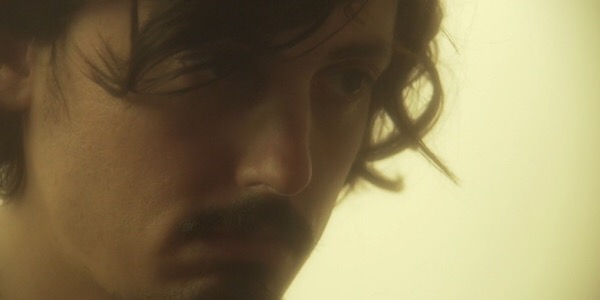
Speaking of that, everyone did their own narration in their part, except for Nick. Why the difference in his?
Nathan Silver: It made sense because his is kind of a story of the past. I liked the idea of it being this, sort of old man on a park bench kind of deal, telling his story. Each section is slightly different, so it made intuitive sense. The first is Mona narrating, second section is Keith narrating. So, it starts off in French and then it goes to English. Then in the third section there is the phone call, which shifts slightly, and is also in French. So, that had a different sort of narration too. In the fourth section we wanted to make it even more different then the first three.
We each new section and each new character you get a different perspective, so you are constantly reforming your opinion of them. By the end you have a fuller portrait of these four people who are struggling to love, others and of themselves, and who are dealing with their own hang ups. It made sense to give each of them these fifteen minutes or so where we see where they are coming from, and how self-absorbed and delusional they are. As well as show each of their suffering.
I loved that it went back and forth between French and English, I think that was a great choice. All of the characters struggle with their self-image, and are a bit self-absorbed.
At the end there’s sort of a clash, between the roles they are playing, and their real lives. I know you wrote the story that the script expanded from- is that why you chose the setting of a play?
Nathan Silver: Well, it all started with the character being a playwright. So, I knew it was going to be about her putting her life into her work. Which, everyone I know who makes movies, that’s what they do. Really, any kind of artist does. The actress that plays Mona is a theater director in France. I had been thinking of different ways to incorporate her into a movie for the past few years, so it just made sense. I knew that whenever I had her play a character that it would be playwright or theater director.
And how did the casting go for the other roles?
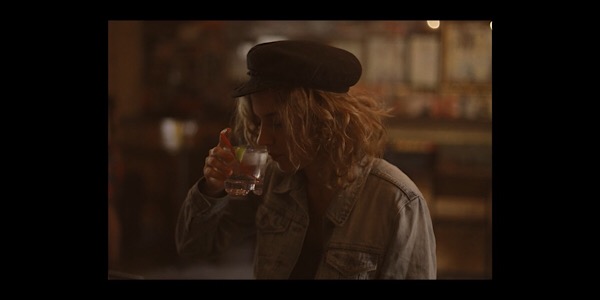
Nathan Silver: So, it started off with Maëlle Poesy-Guichard who plays Mona. I’ve worked with Keith [Poulson] before, and I love him, he’s a friend. I knew he would play the character really well and would have fun with it. With Esther, I had just worked with her on Thirst Street, and Linas Phillips is actually my former roommate!
Oh cool! You wrote the story, and Jack Dunphy wrote the script. Can you elaborate on where you got the idea, obviously you mentioned the playwright element. Can you tell us about the process?
Nathan Silver: Basically, I compiled the pages of notes I had done on her character, and the idea that she would have an affair with the actor who played her ex-boyfriend, and that actress playing her would fall in love with him. These were the initial ideas, and I passed them on to Jack who just ran with them.
You’ve worked on quite a few films in a rather quick succession. What do you look for when planning your next project? Do you have any coming up?
Nathan Silver: In my mind, I’m going back to scripted materials, since this is my first scripted movie in like ten years. So, I think I’m ready to work with my own dialogue. At this point I want to fool around more with structure and genre a bit more. The next scripted thing I’m doing came about because I wanted to make a police movie, and that seemed like an interesting thing to tackle. Often, I’ll be obsessed with an idea or a character and then I’ll start talking to my co-writers and convert it, flourish it, and make it fun for ourselves.
And what’s the next film you have coming out?
Nathan Silver: We’re doing re-shoots right now for this movie that Jack and I are co-directing, it was once called The Pervert but now the working title is Watch Me Drown. So, we’re doing that next week and hopefully editing over the summer. Then I’m working on a new script.
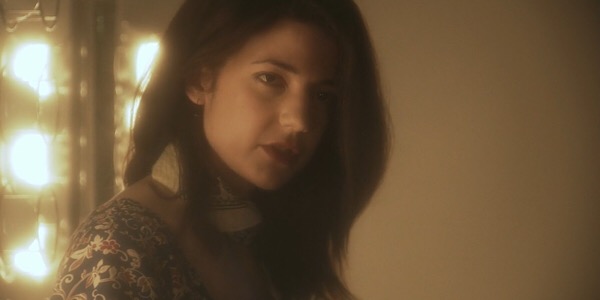
That’s exciting! If you could describe The Great Pretender in five words, what would it be?
Nathan Silver: Delusion. [Laughs] That’s only one though.
Yeah but it’s a perfect one because they all have a delusional idea of themselves and the relationships they are in. Did you have anyone you looked up to, any inspirations that got you interested in being a writer/director?
Nathan Silver: I wanted to be a playwright, and then I started interning for Richard Foreman at the Ontological-Hysteric Theater. He’d talk about how theater was kind of dead, and he’d recommend all these movies for me to watch. He turned me onto Pasolini and Fassbinder. After watching I got really excited, I quit the internship, and started working on screenplays. So, he had a major effect on me, and he was one of my high school heroes. I love Fassbinder and Nicholas Ray, so those were the people who got to me really early on. From there though, there are hundreds of directors who have had an effect on me.
You said that you did an internship, did you go to college as well?
Nathan Silver: I went to NYU for play-writing. I really wanted to do experimental theater.
Well theater has a big presence in the film, so I guess you’re still holding onto that!
Nathan Silver: Yeah, and it’s funny because I only wrote a movie about a playwright because I met Maëlle, but then of course, because that was once my obsession in life, it was kind of a happy coincidence.
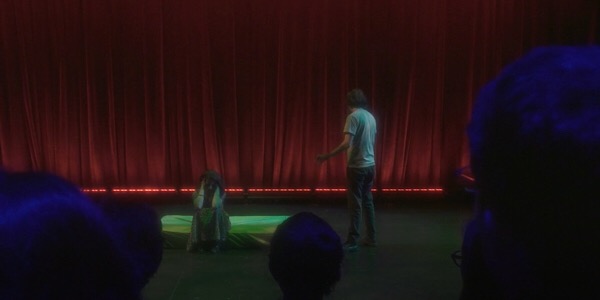
I like to ask, especially those who are prominent indie directors, do you have any advice to share?
Nathan Silver: Yeah, when you start working just try to utilize everything around you, all the equipment etc. And stumble, as much as possible! Because that’s how you learn. I feel like I’m constantly failing, and then I’m using that to know what not to do next, and then maybe I fail in a whole new way. Just work at it!
Grow from mistakes and try as much as you can.
Nathan Silver: To me the idea of wanting to be a filmmaker and then actually making movies are worlds apart. I had an idea of what kind of movies I was going to make, and then I ended up making ones that were completely different. Once you start making them you realize more of what you want to do, and what you can do. You get an idea of your limitations, and therefore know how to work around them.
What did you originally see yourself making when it came to films?
Nathan Silver: When I was younger I kind of saw myself making movies with stop-motion and ones that had no narrative thread. I wanted it to be completely experimental. And I don’t know where that was coming from, but I just wanted to f*ck with the audience. Then I realized that’s not what I want to do, I mean- I do it in my own way, but these movies have plots and character arcs. Nothing like I originally expected of myself.
We want to thank Nathan Silver for taking the time to speak with us.
Does content like this matter to you?
Become a Member and support film journalism. Unlock access to all of Film Inquiry`s great articles. Join a community of like-minded readers who are passionate about cinema - get access to our private members Network, give back to independent filmmakers, and more.
Kristy Strouse is the Owner/Editor in Chief of Film Inquiry, writer, podcaster, and all around film and TV fanatic. She's also VP of Genomic Operations at Katch Data and is a member of The Online Association of Female Film Critics and The Hollywood Creative Alliance. She also has a horror website: Wonderfully Weird & Horrifying.













